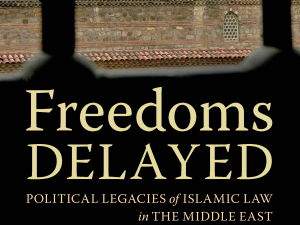Professor Michelle Connolly Comments on FCC Plan to Reverse Title II Net Neutrality

Last month the Federal Communications Commission (FCC) put forward a notice of proposed rulemaking to scale back on net neutrality regulations and recently reopened a docket for public comments. Under the 2015 net neutrality rules, internet service providers were reclassified under Title II as common carriers and prohibited from slowing, blocking, or prioritizing web traffic. Professor Michelle Connolly, former FCC chief economist from 2006 to 2007 and 2008 to 2009, addressed the FCC’s latest actions during her closing remarks at The Free State Foundation’s Telecommunications Conference on May 31 in Washington, D.C.
“There really is a difference between something being intellectually free and being economically free,” she said with regards to the concept of an open internet. According to Connolly, regulations that stifle the market can result in a decline of capital investment in broadband infrastructure improvements, and the consequence of such a decline is reduced deployment, reduced competition, and reduced quality of services.
“While (net neutrality regulations were) intended for many different things, one of the impacts is directly on the consumer,” she said. “Pushing up average prices for average consumers is, if anything, going to marginalize more people who have less income.”
Under FCC Chairman Ajit Pai’s leadership, Connolly believes that economics and data will play a larger role in responsible policy decisions. This is a "very important reversal" from the last administration, she said, because policies should not be made without first considering the possible economic costs and benefits. Pai, who has publicly opposed Title II classification, has advocated for a market-based approach and relaxed, “light-touch” regulations.
“I’m very happy Chairman Pai is working on clearly defining what the regulatory role of the FCC is,” Connolly said. But, without support from Congress, she argued, Pai’s efforts would be short-lived and the digital economy would suffer as a result.
“Uncertainty that is created by vague and continuously changing regulation is a huge disincentive to investment. Unless Congress explicitly states that an agency does not have authority over a particular market, at some point someone heading such an agency will make a regulatory grab,” Connolly said. “This grab, when it occurs, will occur without proof of harm from hypothetical risk and without any credible analysis of the economic cost of such a regulation.”




